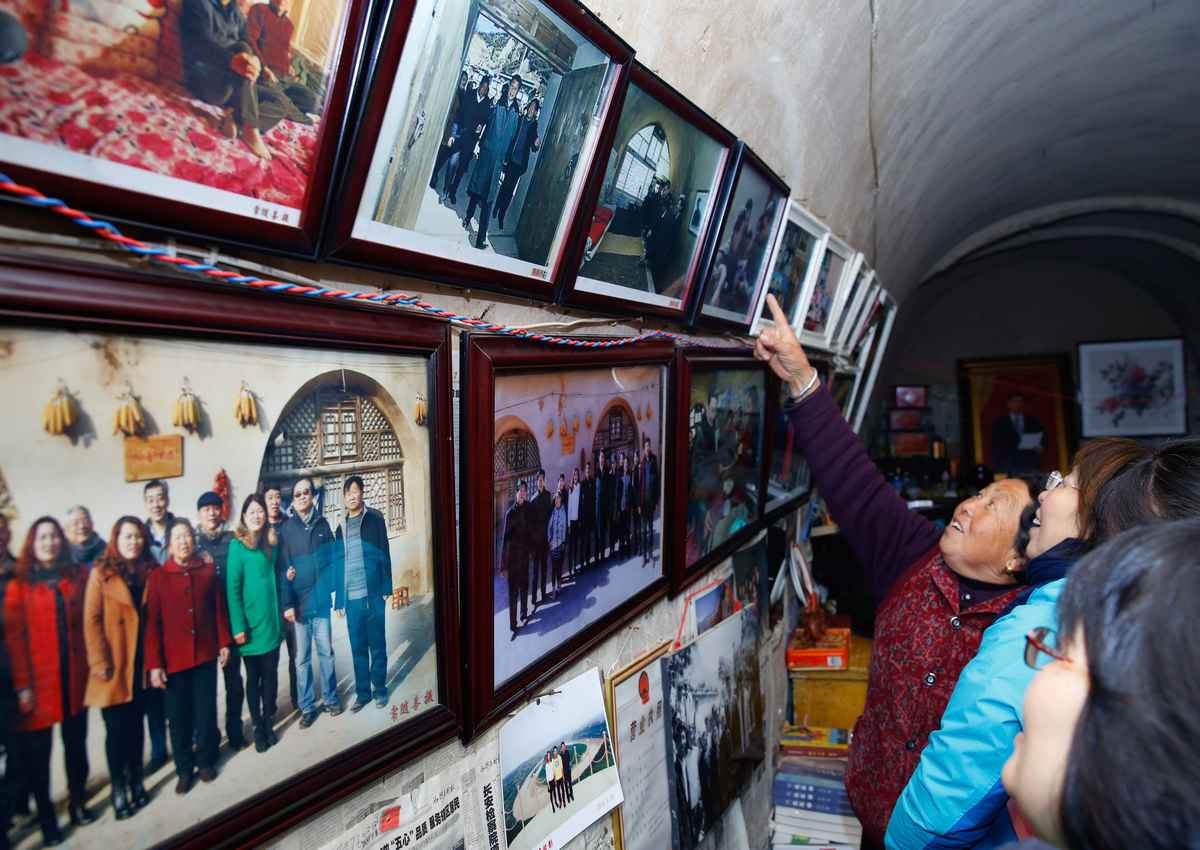LIANGJIAHE, China – Three caves in a remote Chinese village where Xi Jinping was sent during the Cultural Revolution receive a constant stream of Communist pilgrims, come to pay homage four years after he came to power.
Xi, then 15, was ordered to Liangjiahe in 1969 as part of Mao Zedong’s “Up to the Mountain and Down to the Countryside Movement”, which saw educated city youth deployed to rural areas.
The urbane son of a Communist Party grandee, Xi spent seven years hauling grain and sleeping in cave homes on fleabitten brick beds.
But he has said he “left his heart” in Liangjiahe, and credits the experience with his political formation long before he became the most powerful man in the world’s second-largest economy.
Now the dusty village in Shaanxi province, 1,000 kilometres from Beijing, has been transformed into a living shrine to Xi’s years of toil, with vintage Mao posters, thermoses, and kerosene lamps giving the cave homes he occupied an authentic feel.
Between 1,000 and 7,000 tourists visit every day, state media reported, riding in on a highway opened this year, and Xi himself blessed the location with a return journey last year.
In the newly paved main street, Guo Moxi, who worked the fields with Xi, said that since he was appointed as general secretary of the ruling party four years ago on Tuesday, everyone’s lives in Liangjiahe had seen “a big change”.
Four years Xi’s junior, Guo recalls a gentle person of “broad understanding” who was “very compassionate” towards ordinary people.
“He was prepared to spend his life in Liangjiahe. He suffered a lot of hardship and wanted to change the face of this place.” In a sleek museum affiliated with an elite Communist party college in nearby Yan’an, young guides in elegant jackets narrated to elderly visitors the “Four Hardships” Xi suffered – flea bites, bad food, hard labour and assimilating into the peasantry.
Yang Xianglin, a former teacher whose cave home is decked floor to ceiling with enlarged photos of Xi and his wife, painted a picture of the politician as an almost legendary figure, reading books between breaks in hard labour, with a fierce spirit “so one could see he was no common man”.
Last month Xi, already widely seen as China’s most powerful leader for decades, was named the “core” of the Communist Party leadership, giving him a personal authority his immediate predecessors never achieved.
[EMBED]https://studio.brightcove.com/products/videocloud/media/videos/5112661309001[/embed]
His descent from privileged childhood to the countryside, and later return to triumph after trials and suffering, contains “fairy tale elements” akin to the Prince and the Pauper, deepening his common appeal, said Warren Sun of Australia’s Monash University.
“The current promotion of Liangjiahe as a new ‘sacred site’ is apparently part of an effort to bolster Xi’s image as a prince of the people,” he told AFP.
Such myth-making marks a striking difference between Xi and his predecessor Hu Jintao, said Victor Shih of the University of California San Diego.
“Hu tried to downplay his personal history to avoid any appearance of a personality cult,” he told AFP. “We have not seen such effort in the Xi administration.” .
Fields of cabbage still line the road through Liangjiahe, but most residents now spend their days catering to tourists. Some rent out caves or courtyard homes, others drive shuttle buses or have opened shops selling Liangjiahe-branded red-date wine and hot sauce.
Average yearly incomes have nearly doubled from 7,900 yuan (now $1,200) in 2012 to more than 15,000 yuan last year, according to the town’s museum.
A county development plan calls for new restaurants and cave inns to give up to 300 overnight guests a taste of Xi’s life, with hard brick beds and earth stoves to “strictly protect the Liangjiahe brand image”.
Previously free, the village now charges 20 yuan per ticket to enter.
“When he was young, he was incredible,” said a retired teacher named Wang, describing his visit to Liangjiahe as “a form of spiritual self-education”.
The explosive growth of Communist-related tourism in China over recent years has been fuelled in part by Xi’s charisma, and by lingering nostalgia for the simpler era of Mao Zedong.
“Red Tourism has a kind of need for leader worship, for hero worship, for worshipping miracles,” said He Jianmin, head of tourism management at Shanghai University of Finance and Economics.
“If we went to France maybe we would want to see Napoleon. Napoleon was an ordinary Frenchman, but he was a leader. People have this kind of fondness for the past, a leader-worship complex.” But a middle-aged tourist in Liangjiahe surnamed Li sounded a note of dissent, saying it was “wrong” to build the village into a place of adulation for Xi.
“It’s a bad Chinese habit,” he said. “Because a leader lived here, they turn it into an education base, they twist the experience and turn it into a kind of worship.” Whether Xi was a good leader, he said, “time will have to judge”.






































